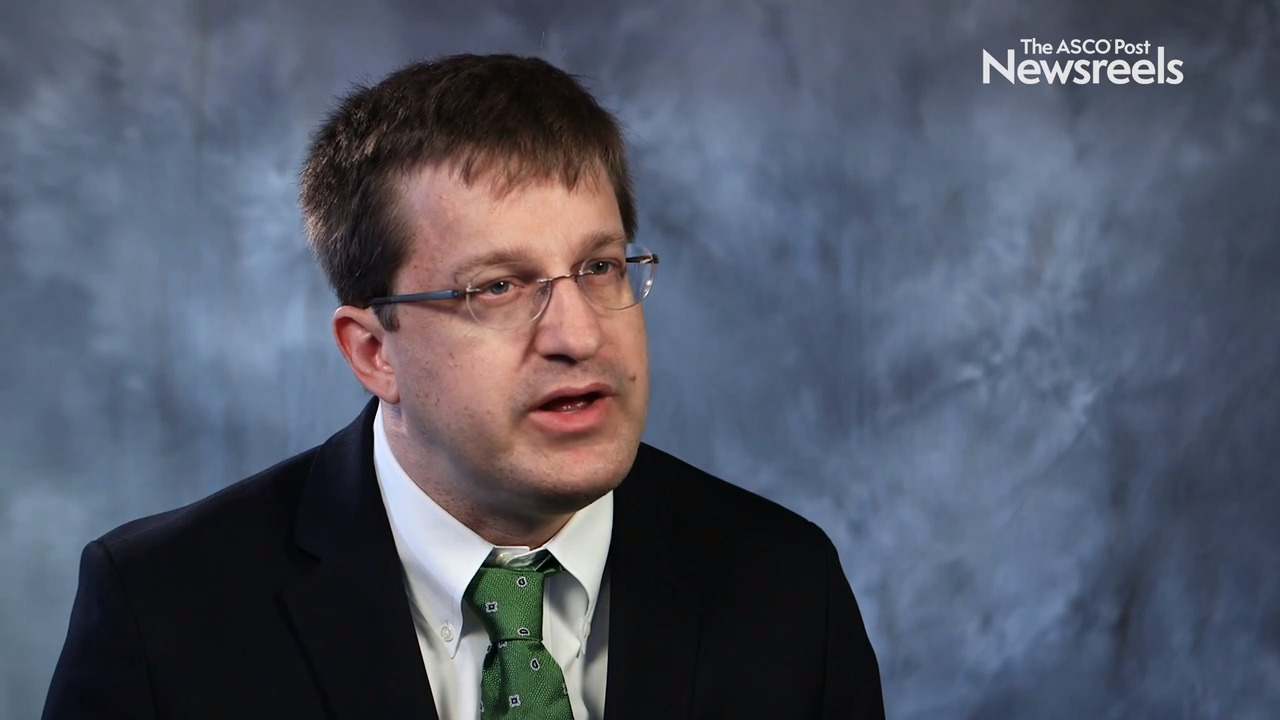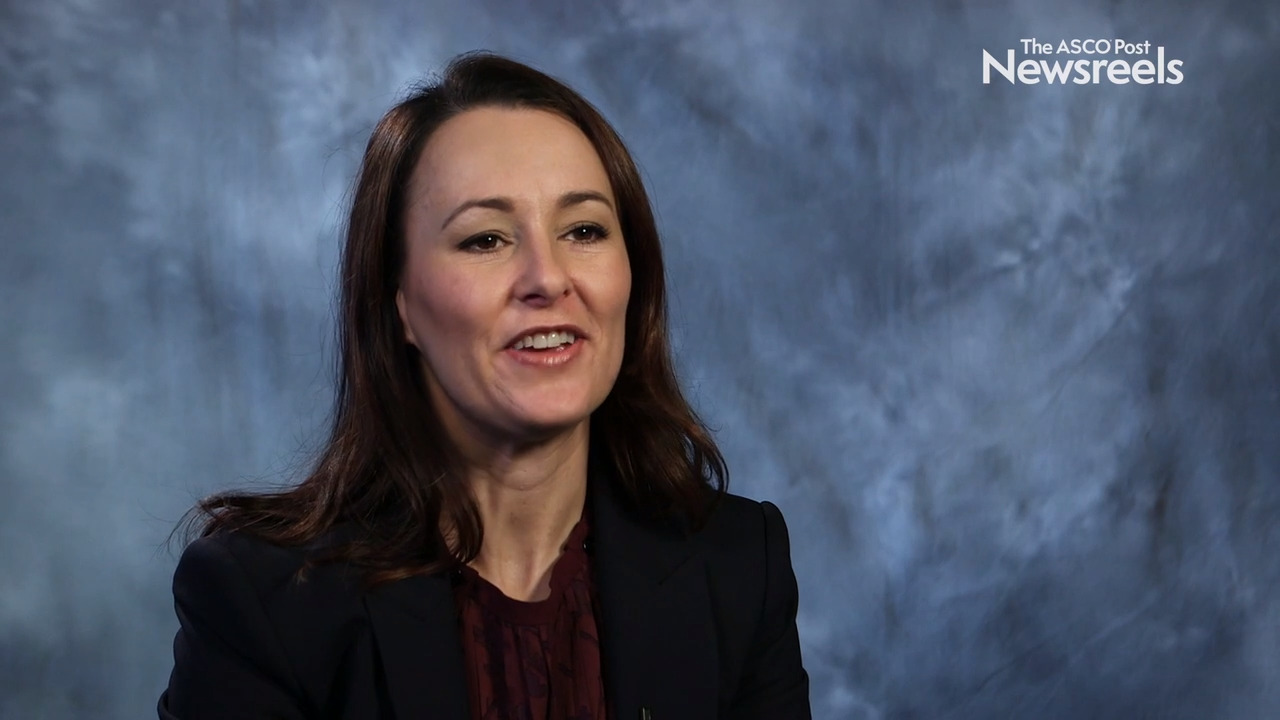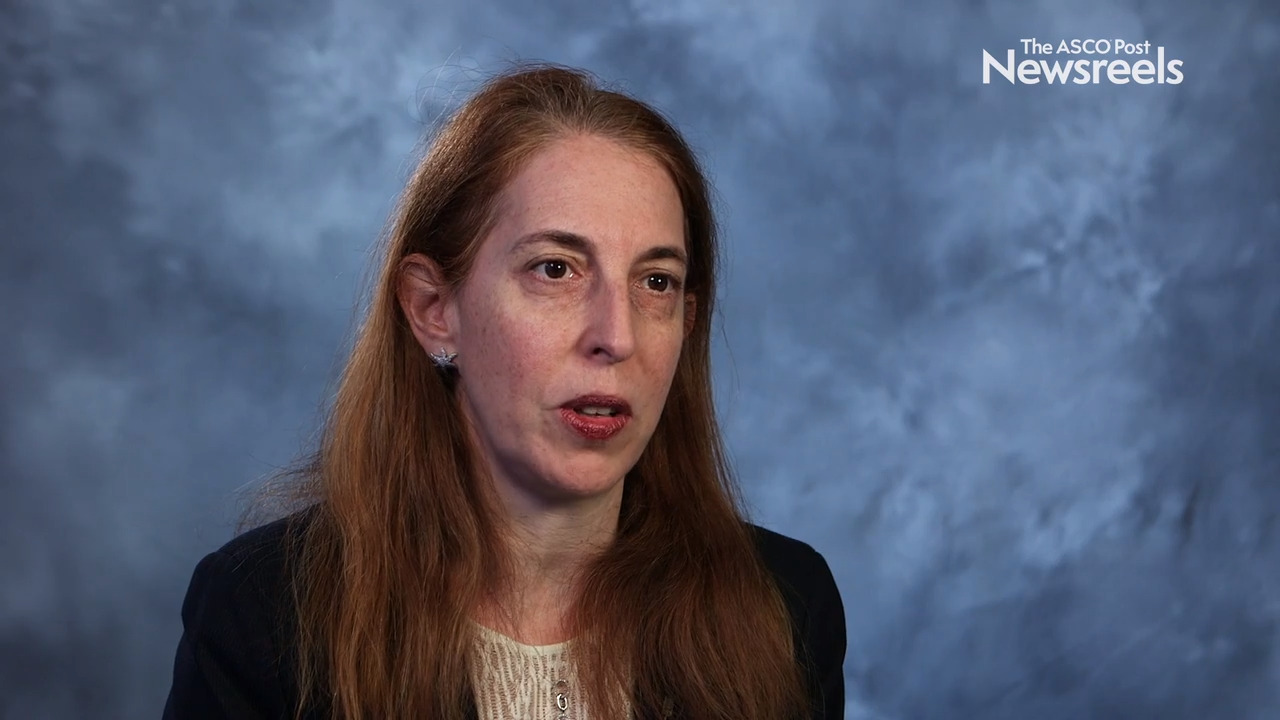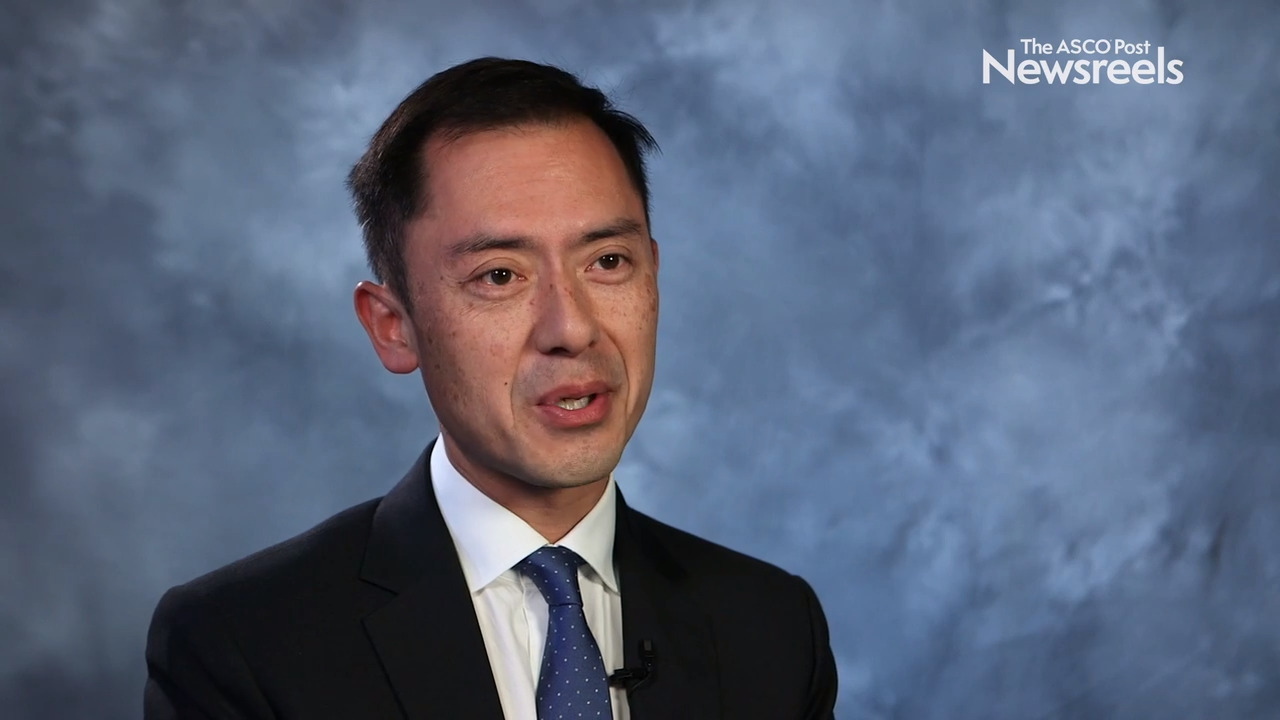Saad Z. Usmani, MD, on Carfilzomib, Dexamethasone, and Daratumumab for Relapsed or Refractory Myeloma
2019 ASH Annual Meeting & Exposition
Saad Z. Usmani, MD, of the Levine Cancer Institute, discusses phase III study findings suggesting that the combination of carfilzomib/dexamethasone/daratumumab represents an efficacious new regimen for patients with relapsed or refractory disease, including those refractory to lenalidomide (Abstract LBA-6).
David P. Steensma, MD, of Dana-Farber Cancer Institute, discusses early study findings on H3B-8800, which decreased the need for red blood cell or platelet transfusion in 14% of patients. This splicing modulator, used in the trial to treat patients with hematologic malignancies, also showed safety, dose-dependent target engagement, and a predictable pharmacokinetic profile (Abstract 673).
Loretta J. Nastoupil, MD, of The University of Texas MD Anderson Cancer Center, discusses phase II study findings that showed obinutuzumab in combination with lenalidomide for patients with previously untreated, high tumor burden follicular lymphoma was associated with improved outcomes (Abstract 125).
Catherine M. Diefenbach, MD, of the Perlmutter Cancer Center at NYU Langone, discusses a primary analysis of a phase Ib/II trial showing that the novel triplet combination of polatuzumab vedotin plus obinutuzumab/lenalidomide is safe and effective, with high complete response rates seen in a heavily pretreated and refractory population (Abstract 126).
Andrew H. Wei, MBBS, PhD, of The Alfred Hospital, Melbourne, discusses phase III findings on oral azacitidine (CC-486), the first treatment used in the maintenance setting shown to improve both overall and disease-free survival in patients with acute myeloid leukemia that is in remission following induction chemotherapy (Abstract LBA-3).
C. Ola Landgren, MD, PhD, of Memorial Sloan Kettering Cancer Center, discusses phase II study findings that showed an 83% negative rate of minimal residual disease in newly diagnosed multiple myeloma treated weekly with 8 cycles of the quadruplet regimen of carfilzomib/lenalidomide/dexamethasone/daratumumab, without autologous stem cell transplant (Abstract 862).





